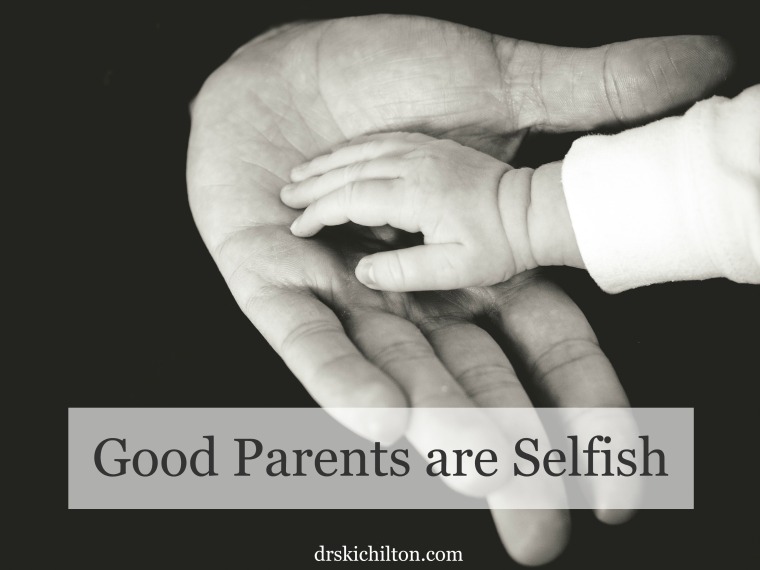I have a lot of experience with raising children. Watch Wednesday’s #rewiredrelationships video and learn the difference between unconditional love and conditional acceptance as it pertains to parenting. #rewiredbrain
Parenting
I have a lot of experience with raising children. Watch Wednesday’s #rewiredrelationships video and learn the difference between unconditional love and conditional acceptance as it pertains to parenting. #rewiredbrain

In almost no other area of life do destructive mental cycles and insecurities affect us as much as they do in parenting.
In The Rewired Brain, I introduce readers to a single mother who allows her son to verbally and emotionally abuse her on the basis of guilt and shame from her failed marriage.
Too often, we take into account others’ opinions and agendas before addressing our own SELF — the mental beliefs, habits, and patterns that govern our lives, often without us even realizing it. If we want to be good parents, we must recognize that addressing ourselves first is not selfish, but necessary.
If that single mother never takes the time to address her underlying shame, the abuse that rooted it, and the mental patterns that reinforce it, she will never be equipped to change the destructive cycle beginning to repeat itself in her family. Her “System 1” (something I discuss at length in The Rewired Brain) is in overdrive as a natural response to her experiences; but just because it is natural does not mean she and her children are doomed to a path of repeated abuse. She — and every one of us — has a choice!
Be it through counseling or other means, transforming your own mind and cultivating a savvy “System 2” (the counterpart to the instinctive, often unhelpful System 1 responses of the human brain) is the difference between toxic parenting and nourishing upbringing. Our instinct is to prioritize our children in all things; but to raise healthy kids, we must first be healthy parents.
While it may feel counterintuitive (because, in fact, it is!) and even wrong to this mother at the outset, investing in understanding and healing herself first will allow her to parent from a place of security and intention.
As a father of four with ages ranging from 21 to 31, I can tell you that raising kids (especially from the teen years to the early twenties) is often incredibly difficult and painful. Often, you feel like you are losing your mind. When a child acts out, or even worse, when they do something crazy or disastrous, it is easy to say to ourself, I am a terrible failure at the most important job that I will ever have.
Let us stop right here with an important principle of parenting.
We should never judge our effectiveness as parents too early in our kids’ upbringing.
As a scientist who spends my days trying to provide structure to the mysteries of the universe, not understanding my own children was particularly troubling. It seemed some days they loved me, other days they hated me. Some days they were happy, other days they were upset and angry. Some days they were motivated, other days they were lazy. Some days they were angels, other days they were, well, you get the point. The constant flux of emotions and drama was an extraordinarily difficult task to manage, much less make sense of.
You see, my frustration at their erratic behavior shifted only when I began to understand human brain development. The developing brain of a child/teenager undergoes an almost infinite number of wiring rearrangements, and that rewiring occurs in a very short period of time. If that were not enough, this nerve wiring is constantly being pruned only to start again.
Specifically, as humans progress through their twenties, much of brain activity moves from back and mid regions (unconscious) to front regions (conscious) of the brain. What that means is during later development, our kids’ brains are less driven by thoughtless emotions and reactions.
So what is our job? Perhaps the most important thing I had to eventually understand was that while I would always love my children unconditionally, I could accept only certain behaviors.
By setting limits and at the same time teaching my children how to love others, I as a parent was playing a critical role in the wiring and rewiring process that would eventual determine their brain structure as adults.
Even under the best of circumstances, teenagers will have difficulty understanding expectations and risks, managing emotions, and handling relationships. The biology and psychology of raising kids is a messy business. To survive, we must understand why or we will drive ourselves crazy wondering what we are doing wrong and how we can be better parents.
But here is the most critical point to stress to my fellow parents out there…
Trust me, it is much easier to be a loving coach from the sidelines than to be a co-participant in the middle of child/teenage CRAZINESS!